Marco Ajmone Marsan
Context-Aware Orchestration of Energy-Efficient Gossip Learning Schemes
Apr 18, 2024



Abstract:Fully distributed learning schemes such as Gossip Learning (GL) are gaining momentum due to their scalability and effectiveness even in dynamic settings. However, they often imply a high utilization of communication and computing resources, whose energy footprint may jeopardize the learning process, particularly on battery-operated IoT devices. To address this issue, we present Optimized Gossip Learning (OGL)}, a distributed training approach based on the combination of GL with adaptive optimization of the learning process, which allows for achieving a target accuracy while minimizing the energy consumption of the learning process. We propose a data-driven approach to OGL management that relies on optimizing in real-time for each node the number of training epochs and the choice of which model to exchange with neighbors based on patterns of node contacts, models' quality, and available resources at each node. Our approach employs a DNN model for dynamic tuning of the aforementioned parameters, trained by an infrastructure-based orchestrator function. We performed our assessments on two different datasets, leveraging time-varying random graphs and a measurement-based dynamic urban scenario. Results suggest that our approach is highly efficient and effective in a broad spectrum of network scenarios.
Green Operations of SWIPT Networks: The Role of End-User Devices
Dec 13, 2023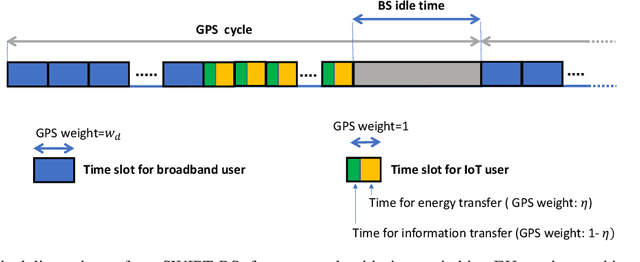
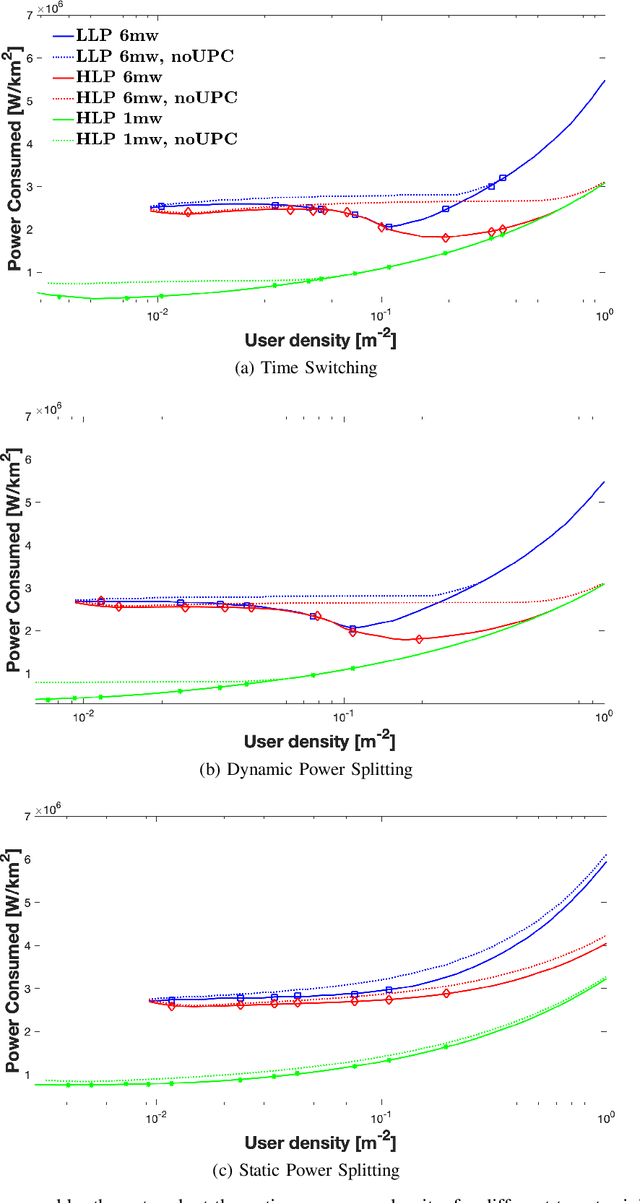
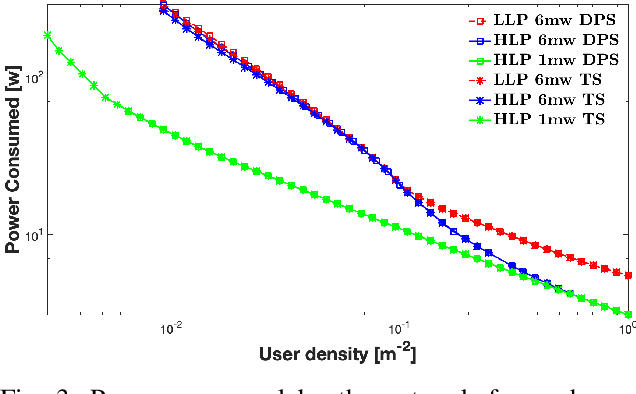
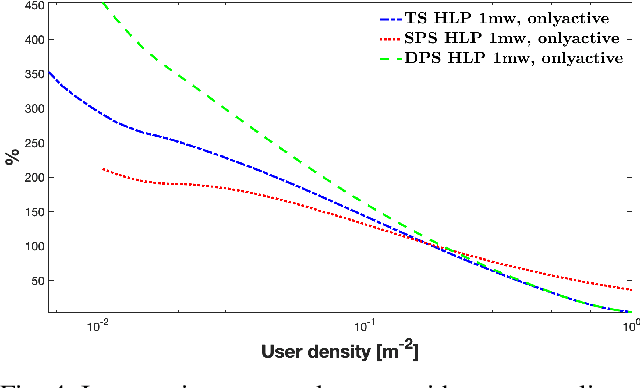
Abstract:Internet of Things (IoT) devices often come with batteries of limited capacity that are not easily replaceable or rechargeable, and that constrain significantly the sensing, computing, and communication tasks that they can perform. The Simultaneous Wireless Information and Power Transfer (SWIPT) paradigm addresses this issue by delivering power wirelessly to energy-harvesting IoT devices with the same signal used for information transfer. For their peculiarity, these networks require specific energy-efficient planning and management approaches. However, to date, it is not clear what are the most effective strategies for managing a SWIPT network for energy efficiency. In this paper, we address this issue by developing an analytical model based on stochastic geometry, accounting for the statistics of user-perceived performance and base station scheduling. We formulate an optimization problem for deriving the energy optimal configuration as a function of the main system parameters, and we propose a genetic algorithm approach to solve it. Our results enable a first-order evaluation of the most effective strategies for energy-efficient provisioning of power and communications in a SWIPT network. We show that the service capacity brought about by users brings energy-efficient dynamic network provisioning strategies that radically differ from those of networks with no wireless power transfer.
On the Limit Performance of Floating Gossip
Feb 16, 2023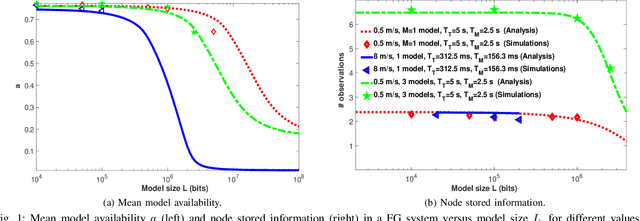
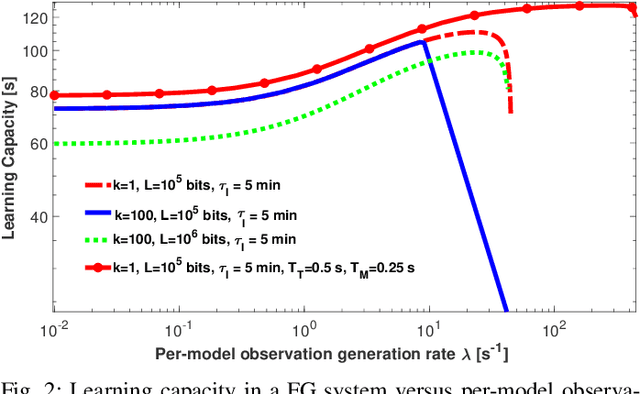
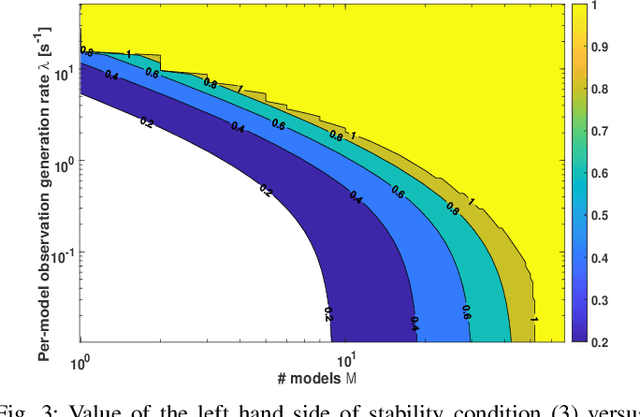
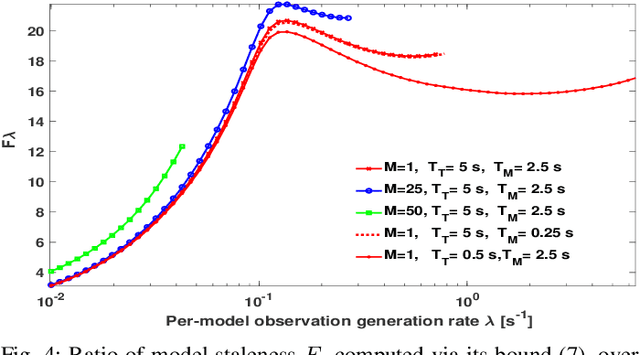
Abstract:In this paper we investigate the limit performance of Floating Gossip, a new, fully distributed Gossip Learning scheme which relies on Floating Content to implement location-based probabilistic evolution of machine learning models in an infrastructure-less manner. We consider dynamic scenarios where continuous learning is necessary, and we adopt a mean field approach to investigate the limit performance of Floating Gossip in terms of amount of data that users can incorporate into their models, as a function of the main system parameters. Different from existing approaches in which either communication or computing aspects of Gossip Learning are analyzed and optimized, our approach accounts for the compound impact of both aspects. We validate our results through detailed simulations, proving good accuracy. Our model shows that Floating Gossip can be very effective in implementing continuous training and update of machine learning models in a cooperative manner, based on opportunistic exchanges among moving users.
DeepFloat: Resource-Efficient Dynamic Management of Vehicular Floating Content
Jun 11, 2019

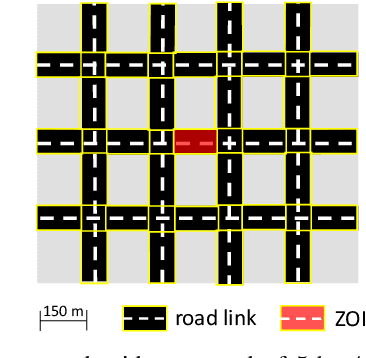
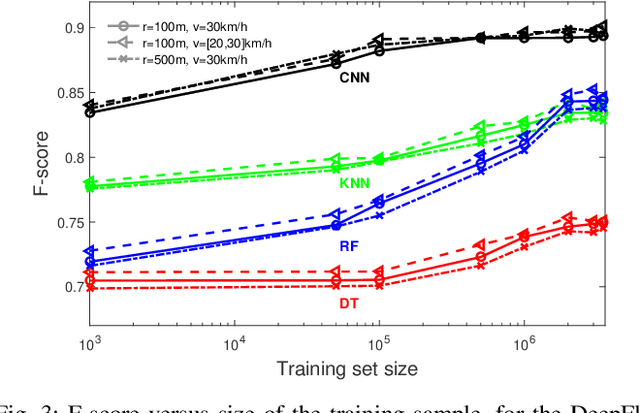
Abstract:Opportunistic communications are expected to playa crucial role in enabling context-aware vehicular services. A widely investigated opportunistic communication paradigm for storing a piece of content probabilistically in a geographica larea is Floating Content (FC). A key issue in the practical deployment of FC is how to tune content replication and caching in a way which achieves a target performance (in terms of the mean fraction of users possessing the content in a given region of space) while minimizing the use of bandwidth and host memory. Fully distributed, distance-based approaches prove highly inefficient, and may not meet the performance target,while centralized, model-based approaches do not perform well in realistic, inhomogeneous settings. In this work, we present a data-driven centralized approach to resource-efficient, QoS-aware dynamic management of FC.We propose a Deep Learning strategy, which employs a Convolutional Neural Network (CNN) to capture the relationships between patterns of users mobility, of content diffusion and replication, and FC performance in terms of resource utilization and of content availability within a given area. Numerical evaluations show the effectiveness of our approach in deriving strategies which efficiently modulate the FC operation in space and effectively adapt to mobility pattern changes over time.
Selecting the top-quality item through crowd scoring
Oct 02, 2017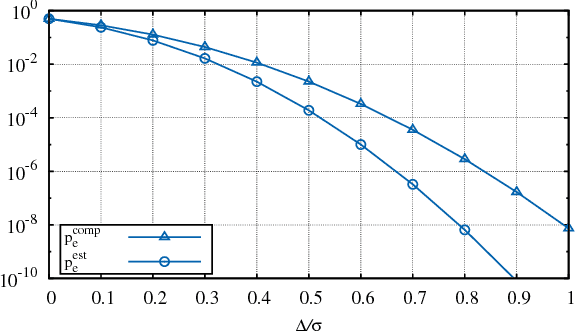
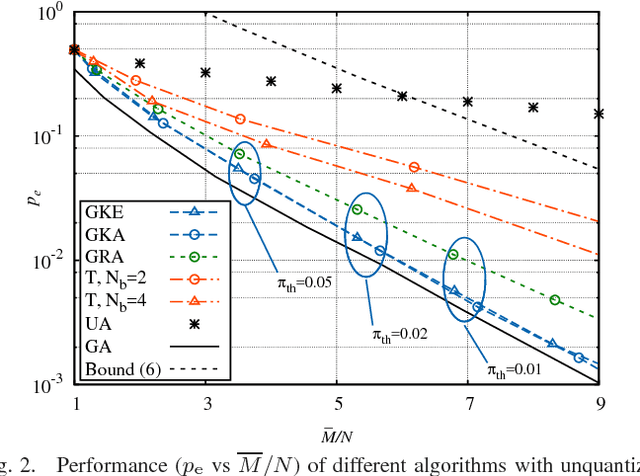
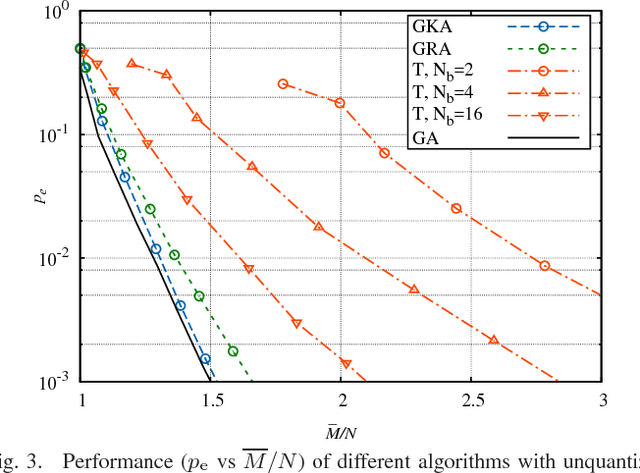
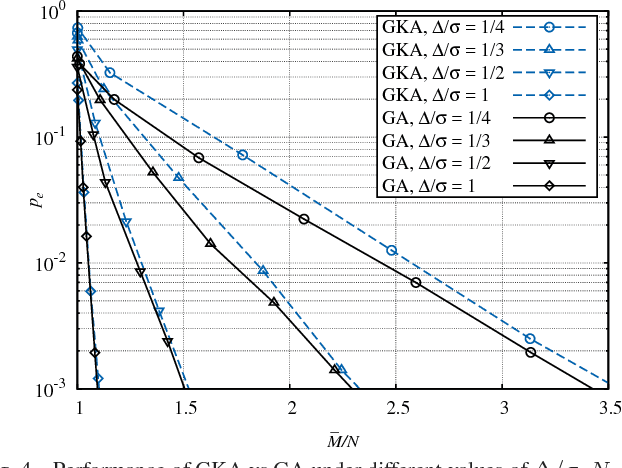
Abstract:We investigate crowdsourcing algorithms for finding the top-quality item within a large collection of objects with unknown intrinsic quality values. This is an important problem with many relevant applications, for example in networked recommendation systems. The core of the algorithms is that objects are distributed to crowd workers, who return a noisy and biased evaluation. All received evaluations are then combined, to identify the top-quality object. We first present a simple probabilistic model for the system under investigation. Then, we devise and study a class of efficient adaptive algorithms to assign in an effective way objects to workers. We compare the performance of several algorithms, which correspond to different choices of the design parameters/metrics. In the simulations we show that some of the algorithms achieve near optimal performance for a suitable setting of the system parameters.
 Add to Chrome
Add to Chrome Add to Firefox
Add to Firefox Add to Edge
Add to Edge